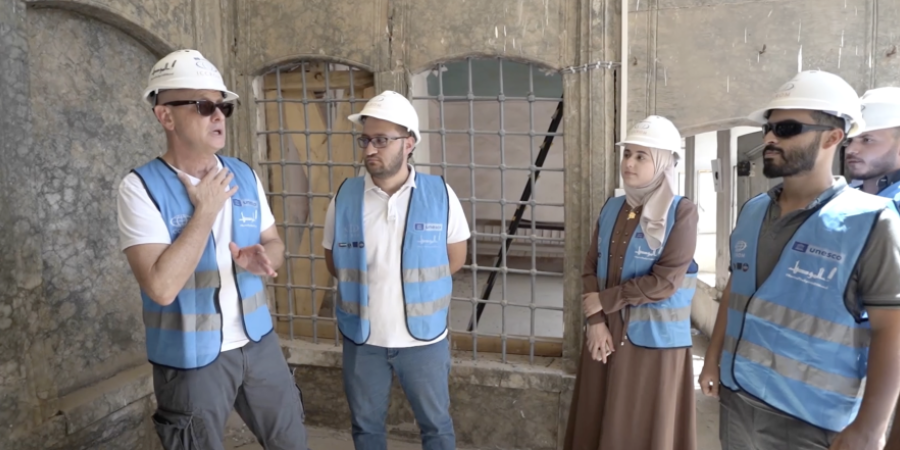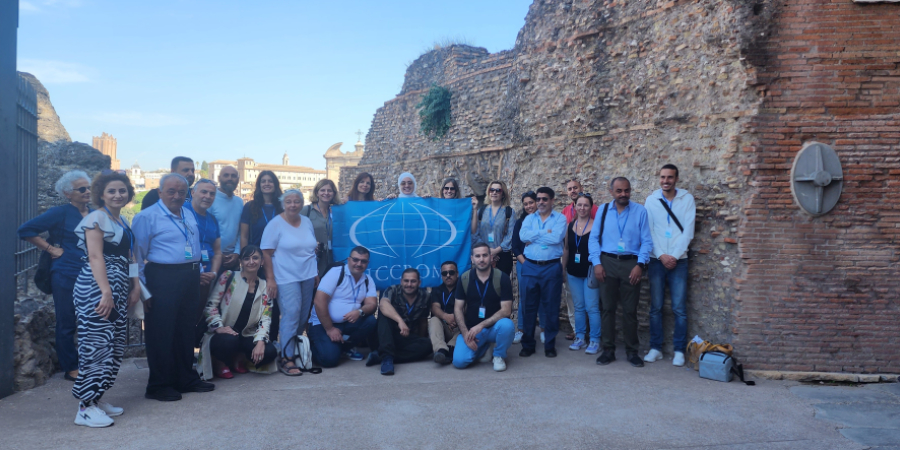Inclusive and integrated capacity building for protecting the city’s heritage can contribute to a sustainable future for its people.
The City of Mosul, meaning “the linking point" in Arabic, is home to a wealth of cultural and religious diversity. With significant shrines dedicated to three monotheistic religions, and other outstanding historical buildings and sites, the city’s heritage and importance transcends millennia.
However, the strategic location that has made Mosul a cultural crossroads throughout history also made it a target for ISIS. In June 2014, Mosul became the largest city to fall to the terrorist organization. The damage to the city’s cultural heritage and surrounding areas during the conflicts have been devastating.
In the aftermath of these horrific events of the recent past, the resolve of the people of Mosul to restore their city is strong. Several projects grouped under the initiative Revive the Spirit of Mosul have been developed on the road to recover the rich heritage.
Under this umbrella, ICCROM is kickstarting its Heritage Recovery Programme in Mosul, a two-year capacity building programme organized in collaboration with UNESCO and the University of Mosul and with the financial support of the Government of the United Arab Emirates and the European Union. With the goal of fostering community reconciliation through the recovery of the environment and rehabilitation of the city’s heritage sites, the programme seeks to ensure long-term sustainable livelihood possibilities for Moslawi people and prosperity for the future.
Our Heritage Recovery Programme has been designed to strengthen the skills of local heritage professionals and craftspeople through training and hands-on technical practice. It will be taught in English and will consist of two tracks.
Track 1: Building capacity for professional development. We will train young building professionals who have a background in architects and civil engineers. Through this programme they will develop valuable skills in value assessment, context analysis, documentation, damage and risk assessment, structural stabilization, recovery planning, as well as adaptive reuse and infrastructure upgradation.
Track 2: Building crafts revival and upgrading. Developed in the spirit of “building back better”, Track 2 will give craft workers the opportunity to enhance their skills while contributing to restoration efforts. The training will take into consideration affordability as well as the ground realities. To ensure sustainability, the programme will establish links with the building industry to ensure the availability of traditional materials, and recycling of usable materials from the rubble will be done as much as possible.
ICCROM is an agile organization dedicated to reaching stakeholders at all levels within its Member States. We are pleased to be assisting the Iraqi Government through this multifaceted programme and to be working in close cooperation with the diverse communities within this iconic city. This will bring a fruitful collaboration with the University of Mosul in developing an academic programme on heritage conservation that will empower new generations of conservation professionals and heritage advocates.
Through a sustainable and resilient building process, we endeavour to help bring hope for the future after the devastating conflict.
The initiative places special emphasis in empowering cultural heritage as a means of cooperation and social cohesion, which together with involving local people starts a sustainable and resilient rebuilding process and hope for the future after the devastating conflict.
Start date: November 2021
End date: July 2022
We are now receiving applications for participants to Track 1. Candidates in Mosul with the relevant background are now invited to submit an application for this yearlong field-based training.
- See our Call for Applications in English and Arabic
- Download the course application form in English and Arabic
- Download the course poster in English and Arabic




